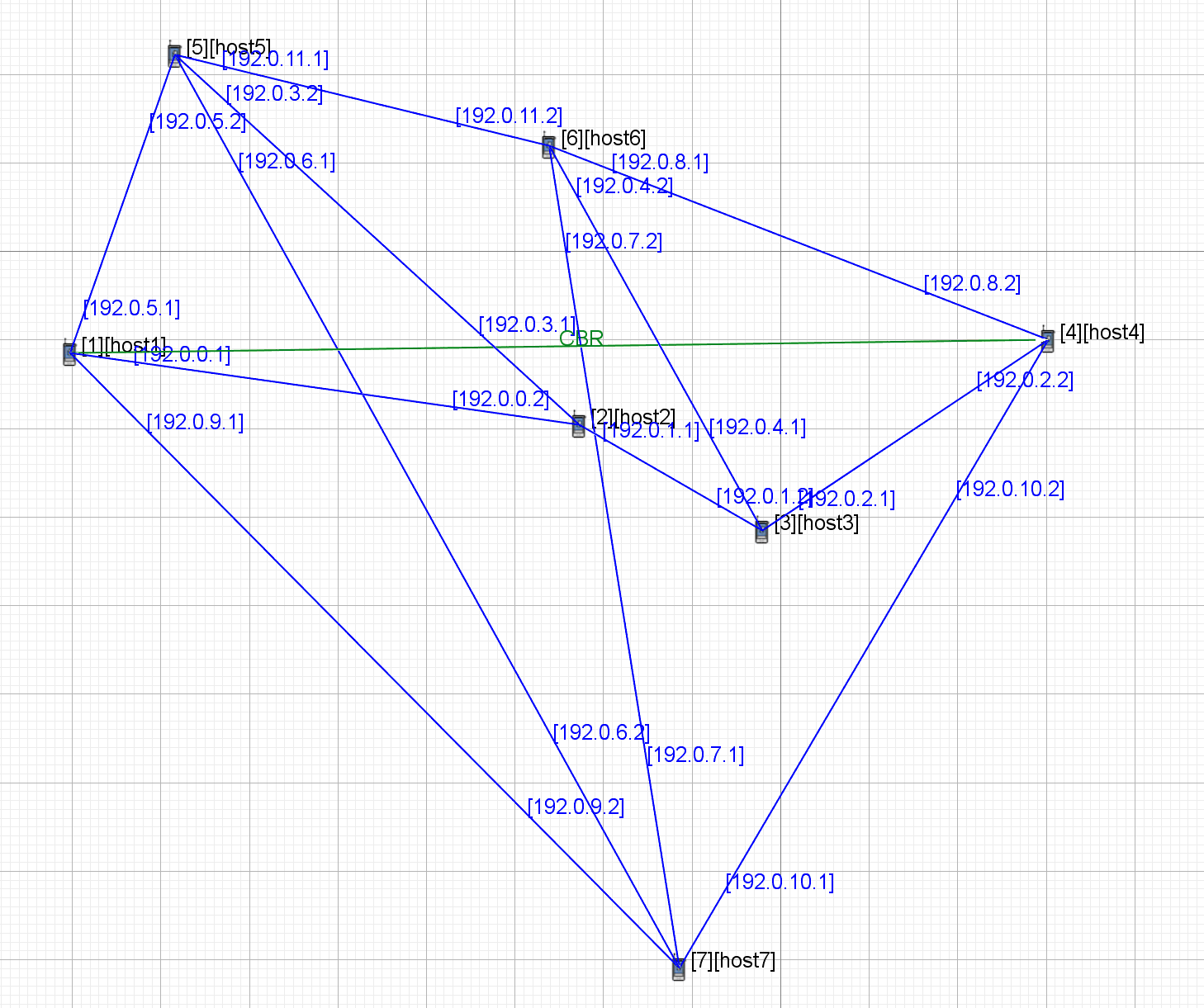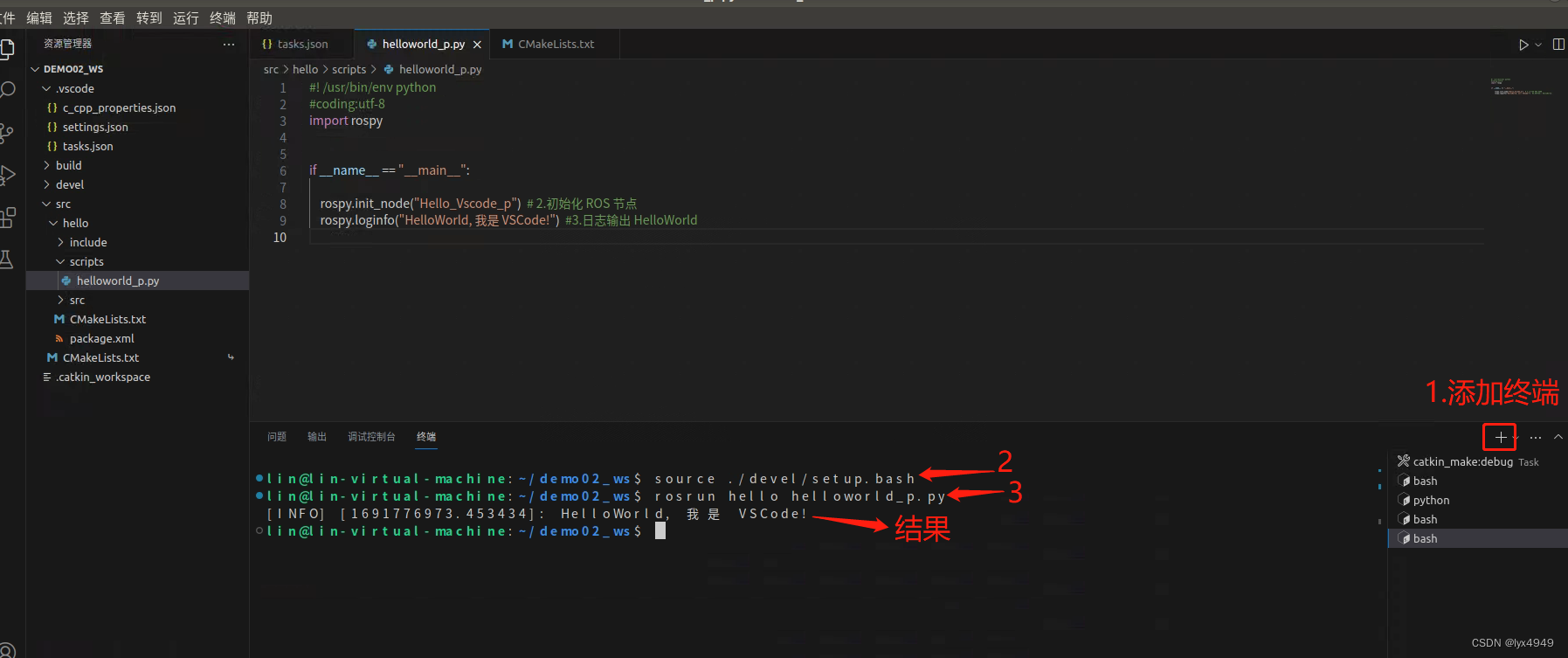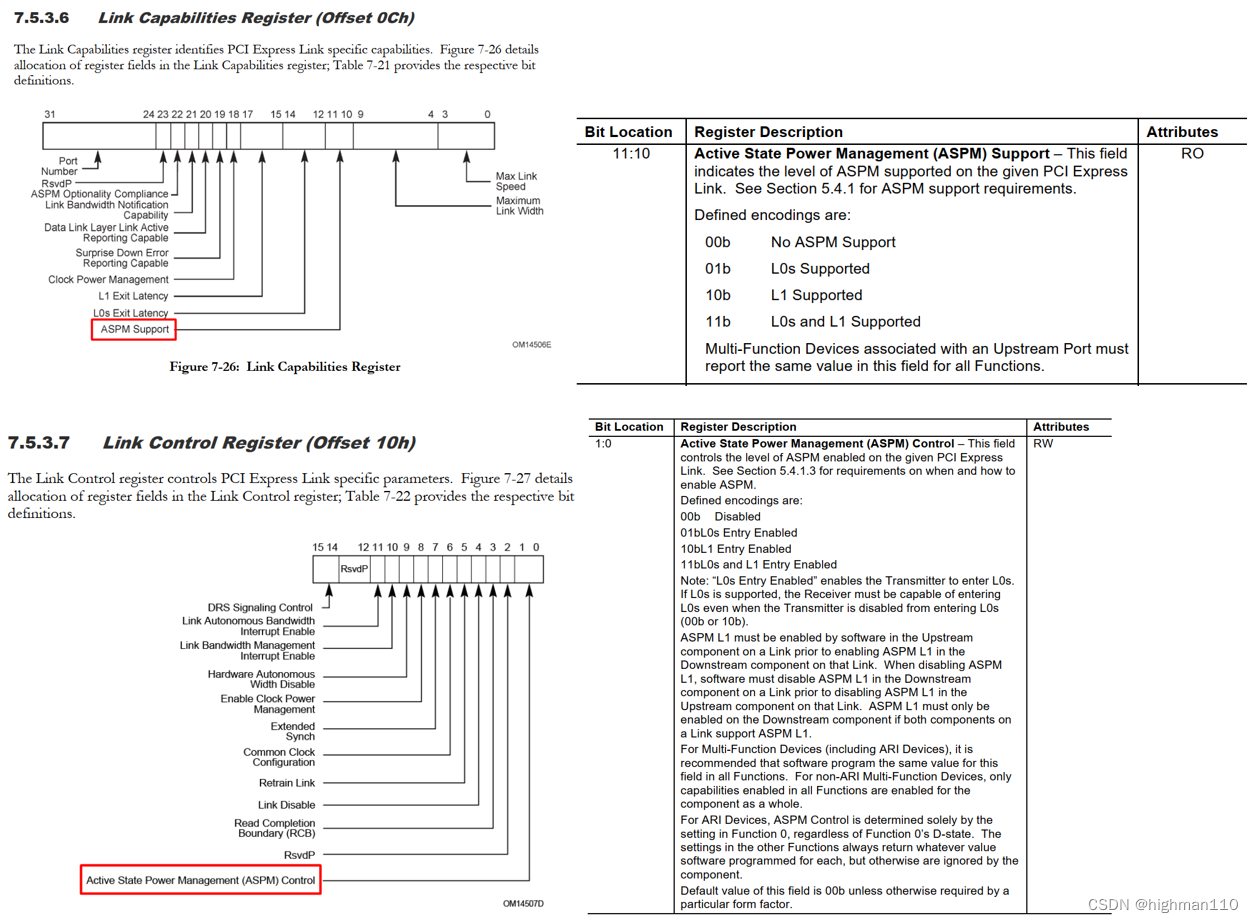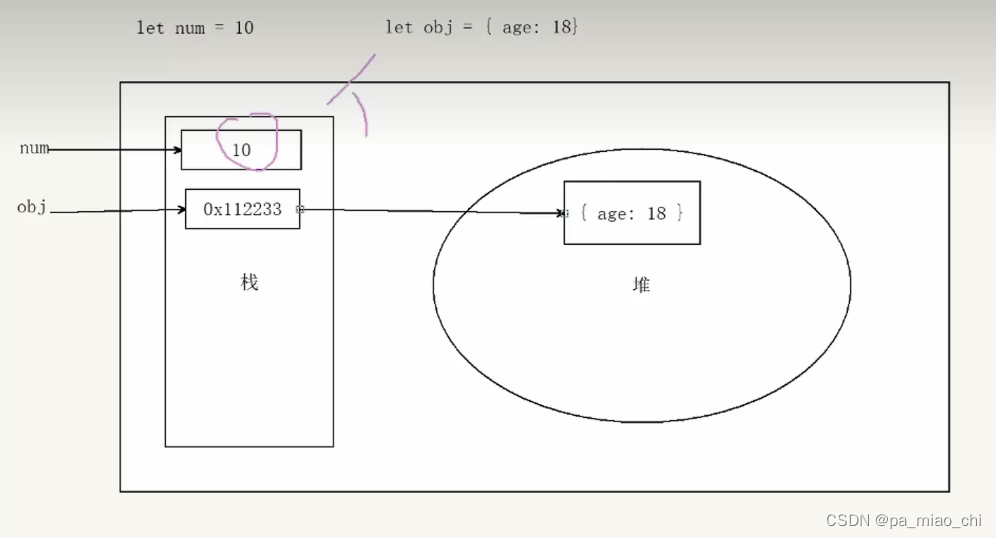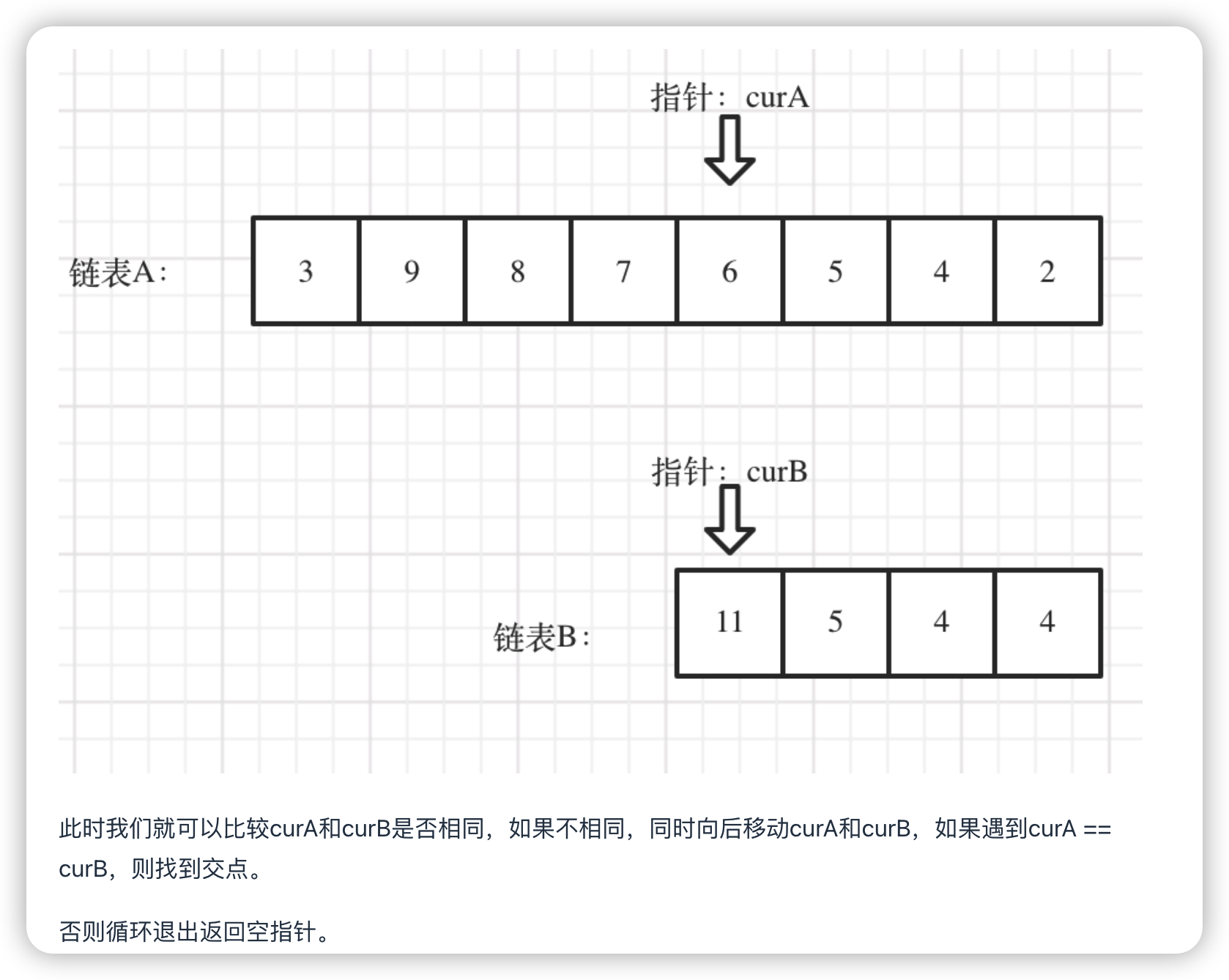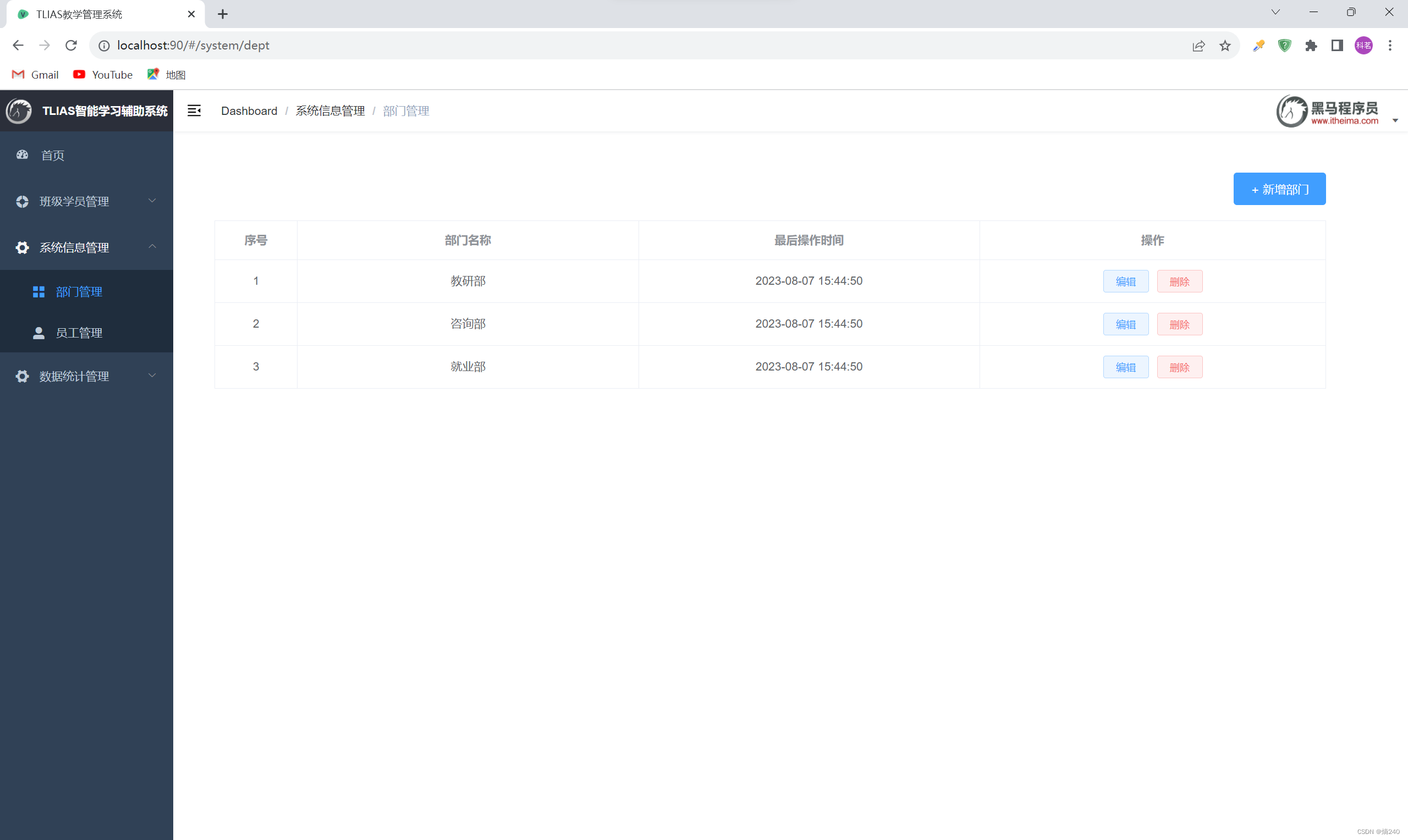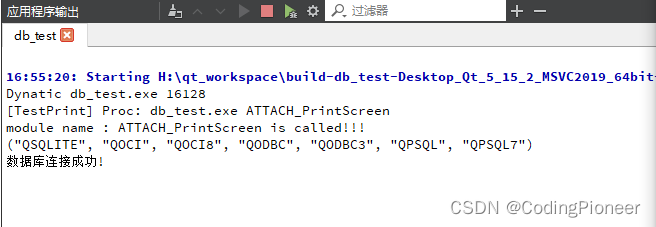修改背景:毅哥铡特自带的《routing_bellmanford.cpp》,按路由跳数进行更新路由表,但是,卫星互联网的卫星路由器节点,可能需要考虑传播传输时延,对应的,可能需要按照两个网络节点的距离来更新路由表。
修改后的《routing_bellmanford.cpp》:
#include <stdio.h>
#include <stdlib.h>
#include <string.h>
#include "api.h"
#include "network_ip.h"
#include "app_util.h"
#include "routing_bellmanford.h"
#include "partition.h" //JSLS添加:[PARTITION_ReturnNodePointer],用于根据[节点ID]获取[节点指针]
#include "coordinates.h" //JSLS添加:用于计算 两个节点之间的物理距离,用于 路由距离的度量
//#define nDEBUG
//#define nDEBUG_TABLE
#define DEBUG 1 //JSLS备注: 去掉前面的 n 字符后,设置为 1,方便 Debug 调试。
#define DEBUG_TABLE 1 //JSLS备注: 去掉前面的 n 字符后,设置为 1,以便调试时查看 路由表
//-----------------------------------------------------------------------------
// DEFINES
//-----------------------------------------------------------------------------
//
// The route table starts with memory allocated for this many routes.
//
#define NUM_INITIAL_ROUTES_ALLOCATED 4
//
// Bellman-Ford value for infinite distance.
//
// #define BELLMANFORD_INFINITY 16 // 原始代码
#define BELLMANFORD_INFINITY 32767 // JSLS修改:15位bit 全为1 ,数值为 32767(单位:㎞千米)。用于 STK Exata 联合仿真时表示 卫星路由器节点间 距离
//
// Each node broadcasts its entire route table (a periodic update)
// at intervals of:
// PERIODIC_UPDATE_INTERVAL + [0, PERIODIC_UPDATE_JITTER) seconds.
//
#define PERIODIC_UPDATE_INTERVAL (10 * SECOND)
#define PERIODIC_UPDATE_JITTER (150 * MILLI_SECOND)
//
// Each node checks for timed-out routes at intervals of:
// CHECK_TIMEOUT_INTERVAL + [0, CHECK_TIMEOUT_JITTER) seconds.
//
#define CHECK_TIMEOUT_INTERVAL (60 * SECOND)
#define CHECK_TIMEOUT_JITTER (100 * MILLI_SECOND)
//
// Triggered updates are scheduled after a delay of:
// TRIGGERED_UPDATE_DELAY + [0, TRIGGERED_UPDATE_JITTER) seconds.
//
#define TRIGGERED_UPDATE_DELAY (0 * SECOND)
#define TRIGGERED_UPDATE_JITTER (150 * MILLI_SECOND)
//
// If a route is >= TIMEOUT_DELAY in age, it is considered timed out.
//
#define TIMEOUT_DELAY (60 * SECOND)
//
// Each route-advertisement packet is limited to this many routes.
// If more routes need to be sent, multiple packets are sent.
//
#define MAX_ROUTES_PER_ROUTE_ADVERTISEMENT_PACKET 32
//-----------------------------------------------------------------------------
// STRUCTS, ENUMS, AND TYPEDEFS
//-----------------------------------------------------------------------------
//
// Route in a route table.
//
typedef struct
{
NodeAddress destAddress;
NodeAddress subnetMask;
NodeAddress nextHop;
int incomingInterface;
int outgoingInterface;
short distance;
BOOL localRoute;
clocktype refreshTime;
BOOL changed;
// This flag is set if its a re-distributed route
BOOL isPermanent;
} Route;
//
// Bellman-Ford state.
//
typedef struct
{
// General state information.
clocktype nextPeriodicUpdateTime;
BOOL triggeredUpdateScheduled;
// Route table.
Route *routeTable;
int numRoutesAllocated;
int numRoutes;
// Statistics.
int numPeriodicUpdates;
int numTriggeredUpdates;
int numRouteTimeouts;
int numRouteAdvertisementsReceived;
RandomSeed periodicJitterSeed;
RandomSeed checkTimeoutSeed;
RandomSeed triggeredUpdateSeed;
BOOL statsPrinted;
} Bellmanford;
//
// Header fields for route-advertisement packet.
//
typedef struct
{
NodeAddress sourceAddress; // source IP address
NodeAddress destAddress; // destination IP address
int payloadSize; // size of payload in bytes
} RoutingBellmanfordHeader;
//
// Route in a route-advertisement packet.
//
typedef struct
{
NodeAddress destAddress;
NodeAddress subnetMask;
NodeAddress nextHop;
int distance;
} AdvertisedRoute;
//
// enum for argument passed to SendRouteAdvertisement() to determine
// whether to execute in periodic or triggered update mode.
//
typedef enum
{
ROUTING_BELLMANFORD_PERIODIC_UPDATE = 0,
ROUTING_BELLMANFORD_TRIGGERED_UPDATE
} RouteAdvertisementType;
//
// enum for argument passed to PrintRouteTable() to vary what kind of
// output to print to screen.
//
typedef enum
{
ROUTING_BELLMANFORD_PRE_UPDATE = 0,
ROUTING_BELLMANFORD_POST_UPDATE
} PrintRouteTableType;
//-----------------------------------------------------------------------------
// PROTOTYPES FOR FUNCTIONS WITH INTERNAL LINKAGE
//-----------------------------------------------------------------------------
//-----------------------------------------------------------------------------
// Handler functions for Bellman-Ford internal messages
//-----------------------------------------------------------------------------
static void //inline//
HandlePeriodicUpdateAlarm(Node *node);
static void //inline//
HandleCheckRouteTimeoutAlarm(Node *node);
static void //inline//
HandleTriggeredUpdateAlarm(Node *node);
static void //inline//
SendRouteAdvertisement(
Node *node, RouteAdvertisementType type);
static void //inline//
ScheduleTriggeredUpdate(Node *node);
//-----------------------------------------------------------------------------
// Handler functions for messages from the transport layer
//-----------------------------------------------------------------------------
static void //inline//
HandleFromTransport(Node *node, Message *msg);
static void //inline//
ProcessRouteAdvertisementPacket(
Node *node,
NodeAddress neighborAddr,
int incomingInterfaceIndex,
int numOfRTEntries,
AdvertisedRoute *neighborRowPtr);
//-----------------------------------------------------------------------------
// Route table manipulation functions
//-----------------------------------------------------------------------------
static void //inline//
InitRouteTable(Bellmanford *bellmanford);
static Route * //inline//
FindRoute(
Bellmanford *bellmanford,
NodeAddress destAddress);
static Route * //inline//
AddRoute(
Bellmanford *bellmanford,
NodeAddress destAddress,
NodeAddress subnetMask,
NodeAddress nextHop,
int incomingInterfaceIndex,
int distance);
//-----------------------------------------------------------------------------
// Statistics
//-----------------------------------------------------------------------------
static void //inline//
PrintStats(Node *node);
//-----------------------------------------------------------------------------
// Debug output functions
//-----------------------------------------------------------------------------
static void //inline//
PrintRouteAdvertisementPacket(
Node *node,
AdvertisedRoute *neighborRowPtr,
int numAdvertisedRoutes);
static void //inline//
PrintRouteTable(
Node *node,
PrintRouteTableType type);
//-----------------------------------------------------------------------------
// FUNCTIONS WITH EXTERNAL LINKAGE
//-----------------------------------------------------------------------------
// Bellmanford initialization for tracing
//
// \param node Pointer to node
// \param nodeInput Pointer to NodeInput
//
void RoutingBellmanfordInitTrace(Node* node, const NodeInput* nodeInput)
{
char buf[MAX_STRING_LENGTH];
BOOL retVal;
BOOL traceAll = TRACE_IsTraceAll(node);
BOOL trace = FALSE;
static BOOL writeMap = TRUE;
IO_ReadString(
node->nodeId,
ANY_ADDRESS,
nodeInput,
"TRACE-BELLMANFORD",
&retVal,
buf);
if (retVal)
{
if (strcmp(buf, "YES") == 0)
{
trace = TRUE;
}
else if (strcmp(buf, "NO") == 0)
{
trace = FALSE;
}
else
{
ERROR_ReportError(
"TRACE-BELLMANFORD should be either \"YES\" or \"NO\".\n");
}
}
else
{
if (traceAll || node->traceData->layer[TRACE_APPLICATION_LAYER])
{
trace = TRUE;
}
}
if (trace)
{
TRACE_EnableTraceXML(node, TRACE_BELLMANFORD,
"BELLMANFORD", RoutingBellmanfordPrintTraceXML, writeMap);
}
else
{
TRACE_DisableTraceXML(node, TRACE_BELLMANFORD,
"BELLMANFORD", writeMap);
}
writeMap = FALSE;
}
//-----------------------------------------------------------------------------
// Print TraceXML function
//-----------------------------------------------------------------------------
//-----------------------------------------------------------------------------
// FUNCTION :: RoutingBellmanfordPrintTraceXML
// LAYER :: NETWORK
// PURPOSE :: Print packet trace information in XML format
// PARAMETERS ::
// + node : Node* : Pointer to node
// + msg : Message* : Pointer to packet to print headers from
// RETURN :: void : NULL
//-----------------------------------------------------------------------------
void RoutingBellmanfordPrintTraceXML(Node* node, Message* msg)
{
char buf[MAX_STRING_LENGTH];
char sourceAddr[MAX_STRING_LENGTH];
char destinationAddr[MAX_STRING_LENGTH];
char nexthopAddr[MAX_STRING_LENGTH];
Bellmanford *bellmanford = (Bellmanford *) node->appData.bellmanford;
RoutingBellmanfordHeader *header;
AdvertisedRoute *payload;
int numAdvertisedRoutes;
// If bellmanford is not configured here, then discard message.
if (!bellmanford)
{
return;
}
// Obtain pointers to header, payload.
header = (RoutingBellmanfordHeader *) msg->packet;
payload = (AdvertisedRoute *)
(msg->packet + sizeof(RoutingBellmanfordHeader));
IO_ConvertIpAddressToString(header->sourceAddress, sourceAddr);
IO_ConvertIpAddressToString(header->destAddress , destinationAddr);
// Obtain number of rows in update.
sprintf(buf, "<bellmanford>");
TRACE_WriteToBufferXML(node, buf);
sprintf(buf,"%s %s %d",
sourceAddr,
destinationAddr,
header->payloadSize );
TRACE_WriteToBufferXML(node, buf);
numAdvertisedRoutes = header->payloadSize / sizeof(AdvertisedRoute);
for (int i = 0; i < numAdvertisedRoutes; i++) {
IO_ConvertIpAddressToString(payload->destAddress , destinationAddr);
IO_ConvertIpAddressToString(payload->subnetMask, sourceAddr);
IO_ConvertIpAddressToString(payload->nextHop, nexthopAddr);
sprintf(buf,"<advertisedRoute>%s %s %s %d </advertisedRoute>",
destinationAddr,
sourceAddr,
nexthopAddr,
payload->distance);
TRACE_WriteToBufferXML(node, buf);
payload++;
}
sprintf(buf, "</bellmanford>");
TRACE_WriteToBufferXML(node, buf);
}
//-----------------------------------------------------------------------------
// Init function
//-----------------------------------------------------------------------------
//-----------------------------------------------------------------------------
// FUNCTION RoutingBellmanfordInit
// PURPOSE Initializes the Bellman-Ford model.
//
// Parameters:
//
// Node *node
// For current node
//
// Notes:
//
// This function is called once per node, for nodes which are running
// the Bellman-Ford model for routing.
//-----------------------------------------------------------------------------
void
RoutingBellmanfordInit(Node *node)
{
Bellmanford *bellmanford;
int i;
clocktype randomDelay;
Message *newMsg;
if (node->get_networkData()->networkProtocol == NETWORK_IPV6)
{
// Bellmanford is an IPv4 Network based routing protocol,
// it can not be run on this node
return;
}
// Allocate Bellmanford struct. Assign pointers.
bellmanford = (Bellmanford *) MEM_malloc(sizeof(Bellmanford));
node->appData.bellmanford = (void *) bellmanford;
//Need for route redistribution
NetworkDataIp* ip = node->get_networkVar();
// Init stats.
bellmanford->numPeriodicUpdates = 0;
bellmanford->numRouteTimeouts = 0;
bellmanford->numTriggeredUpdates = 0;
bellmanford->numRouteAdvertisementsReceived = 0;
bellmanford->statsPrinted = FALSE;
// Init random seeds to each be different
RANDOM_SetSeed(bellmanford->periodicJitterSeed,
node->globalSeed,
node->nodeId,
ROUTING_PROTOCOL_BELLMANFORD,
1);
RANDOM_SetSeed(bellmanford->checkTimeoutSeed,
node->globalSeed,
node->nodeId,
ROUTING_PROTOCOL_BELLMANFORD,
2);
RANDOM_SetSeed(bellmanford->triggeredUpdateSeed,
node->globalSeed,
node->nodeId,
ROUTING_PROTOCOL_BELLMANFORD,
3);
// Init Bellman-Ford route table.
InitRouteTable(bellmanford);
// Add 0-hop routes to local networks. These are flagged as
// local routes.
//
// Loop through all interfaces, since it's assumed that Bellman-Ford
// is running on all interfaces on a node.
for (i = 0; i < node->numberInterfaces; i++)
{
NodeAddress destAddress;
NodeAddress subnetMask;
Route *rowPtr;
if (NetworkIpGetInterfaceType(node, i) != NETWORK_IPV4
&& NetworkIpGetInterfaceType(node, i) != NETWORK_DUALIP)
{
continue;
}
if (NetworkIpIsWiredNetwork(node, i))
{
// This is a wiredlink interface.
//
// The destAddress is the network address for the interface,
// and subnetMask is the subnet mask for the interface.
destAddress = NetworkIpGetInterfaceNetworkAddress(node, i);
subnetMask = NetworkIpGetInterfaceSubnetMask(node, i);
}
else
{
// This is a wireless interface.
//
// The destAddress is the IP address of the interface
// itself, and subnetMask is 255.255.255.255 (ANY_DEST is
// an all-one 32-bit value).
//
// This means that the route applies exactly to the host IP
// address of the interface. (not to a network address)
destAddress = NetworkIpGetInterfaceAddress(node, i);
subnetMask = ANY_DEST;
}
if (!FindRoute(bellmanford, destAddress)
// Dynamic address
&& ip->interfaceInfo[i]->addressState != INVALID)
{
rowPtr = AddRoute(bellmanford,
destAddress,
subnetMask,
NetworkIpGetInterfaceAddress(node, i),
i,
0);
rowPtr->localRoute = TRUE;
}
#ifdef ENTERPRISE_LIB
if (ip->interfaceInfo[i]->routingProtocolType
== ROUTING_PROTOCOL_BELLMANFORD)
{
RouteRedistributeSetRoutingTableUpdateFunction(
node,
&BellmanfordHookToRedistribute,
i);
}
#endif // ENTERPRISE_LIB
}
// Calculate jitter for first periodic update.
randomDelay = RANDOM_nrand(bellmanford->periodicJitterSeed) % PERIODIC_UPDATE_JITTER;
// Schedule first periodic update.
newMsg = MESSAGE_Alloc(node,
APP_LAYER,
APP_ROUTING_BELLMANFORD,
MSG_APP_PeriodicUpdateAlarm);
MESSAGE_Send(node, newMsg, 0);
// Record time of periodic update in nextPeriodicUpdateTime.
// (ScheduleTriggeredUpdate() uses this value.)
bellmanford->nextPeriodicUpdateTime = node->getNodeTime() + randomDelay;
// Calculate jitter for first route timeout check.
randomDelay = RANDOM_nrand(bellmanford->checkTimeoutSeed) % CHECK_TIMEOUT_JITTER;
// Schedule first route timeout.
newMsg = MESSAGE_Alloc(node,
APP_LAYER,
APP_ROUTING_BELLMANFORD,
MSG_APP_CheckRouteTimeoutAlarm);
MESSAGE_Send(node, newMsg, CHECK_TIMEOUT_INTERVAL + randomDelay);
// Dynamic address
// registering RoutingBellmanfordHandleAddressChangeEvent function
NetworkIpAddAddressChangedHandlerFunction(node,
&RoutingBellmanfordHandleChangeAddressEvent);
}
//-----------------------------------------------------------------------------
// Layer function
//-----------------------------------------------------------------------------
//-----------------------------------------------------------------------------
// FUNCTION RoutingBellmanfordLayer
// PURPOSE Layer function for the Bellman-Ford model.
//
// Parameters:
//
// Node *node
// For current node
// Message *msg
// Message to be processed
//
// Notes:
//
// The MESSAGE_Free() on msg is called at the end of the function.
//-----------------------------------------------------------------------------
void
RoutingBellmanfordLayer(Node *node, Message *msg)
{
if (node->get_networkData()->networkProtocol == NETWORK_IPV6)
{
// Bellmanford is an IPv4 Network based routing protocol,
// it can not be run on this node
ActionData acnData;
acnData.actionType = DROP;
acnData.actionComment = DROP_INVALID_NETWORK_PROTOCOL;
TRACE_PrintTrace(node,
msg,
TRACE_APPLICATION_LAYER,
PACKET_OUT,
&acnData);
MESSAGE_Free(node, msg);
return;
}
switch (msg->eventType)
{
// Messages sent within Bellman-Ford.
case MSG_APP_PeriodicUpdateAlarm:
{
HandlePeriodicUpdateAlarm(node);
break;
}
case MSG_APP_CheckRouteTimeoutAlarm:
{
HandleCheckRouteTimeoutAlarm(node);
break;
}
case MSG_APP_TriggeredUpdateAlarm:
{
HandleTriggeredUpdateAlarm(node);
break;
}
// Messages sent by UDP to Bellman-Ford.
case MSG_APP_FromTransport:
{
HandleFromTransport(node, msg);
break;
}
default:
ERROR_ReportError("Invalid switch value");
}
// Done with the message, so free it.
MESSAGE_Free(node, msg);
}
//-----------------------------------------------------------------------------
// Finalize function
//-----------------------------------------------------------------------------
//-----------------------------------------------------------------------------
// FUNCTION RoutingBellmanfordFinalize
// PURPOSE Finalize function for the Bellman-Ford model.
//
// Parameters:
//
// Node *node
// For current node.
// int interfaceIndex
// Interface index we are finalizing.
//
// Notes:
//
// Called once per node, per interface that is running Bellman-Ford.
// ...PrintStats() is called only for interfaceIndex 0. See the
// ...PrintStats() function for more info.
//-----------------------------------------------------------------------------
void
RoutingBellmanfordFinalize(Node *node, int interfaceIndex)
{
Bellmanford *bellmanford = (Bellmanford *)node->appData.bellmanford;
if (node->get_networkData()->networkProtocol == NETWORK_IPV6)
{
// Bellmanford is an IPv4 Network based routing protocol,
// it can not be run on this node
return;
}
if (node->appData.routingStats == TRUE
&& bellmanford->statsPrinted == FALSE)
{
PrintStats(node);
bellmanford->statsPrinted = TRUE;
}
}
//-----------------------------------------------------------------------------
// FUNCTIONS WITH INTERNAL LINKAGE
//-----------------------------------------------------------------------------
//-----------------------------------------------------------------------------
// Handler functions for Bellman-Ford internal messages
//-----------------------------------------------------------------------------
//-----------------------------------------------------------------------------
// FUNCTION HandlePeriodicUpdateAlarm
// PURPOSE Broadcasts a periodic update and schedules another.
//
// Parameters:
//
// Node *node
// For current node.
//-----------------------------------------------------------------------------
static void //inline//
HandlePeriodicUpdateAlarm(Node *node)
{
Bellmanford *bellmanford = (Bellmanford *) node->appData.bellmanford;
clocktype delay;
Message *newMsg;
// Send all routes to UDP. Increment stat.
SendRouteAdvertisement(
node, ROUTING_BELLMANFORD_PERIODIC_UPDATE);
// Schedule next periodic update. (node->getNodeTime() + 10 s + 0-100 ms)
delay = PERIODIC_UPDATE_INTERVAL
+ (RANDOM_nrand(bellmanford->periodicJitterSeed) % PERIODIC_UPDATE_JITTER);
newMsg = MESSAGE_Alloc(node,
APP_LAYER,
APP_ROUTING_BELLMANFORD,
MSG_APP_PeriodicUpdateAlarm);
MESSAGE_Send(node, newMsg, delay);
// Record time of next periodic update in nextPeriodicUpdateTime.
// (ScheduleTriggeredUpdate() uses this value.)
bellmanford->nextPeriodicUpdateTime = node->getNodeTime() + delay;
}
//-----------------------------------------------------------------------------
// FUNCTION HandleCheckRouteTimeoutAlarm
// PURPOSE Checks for route timeouts, schedules triggered update if
// necessary. Schedules next route timeout check.
//
// Parameters:
//
// Node *node
// For current node.
//
// Notes:
//
// All routes (that aren't timed out already) are checked for staleness.
// Stale routes are marked unreachable and a triggered update is
// scheduled.
//-----------------------------------------------------------------------------
static void //inline//
HandleCheckRouteTimeoutAlarm(Node *node)
{
Bellmanford *bellmanford = (Bellmanford *) node->appData.bellmanford;
int i;
BOOL routeChanged;
Message *newMsg;
#ifdef DEBUG
{
printf("Bellmanford: %s s, node %u, --- Route timeout check\n",
TIME_PrintClockInSecond(node->getNodeTime()).c_str(), node->nodeId);
}
#endif // DEBUG
// Look for stale routes in route table.
routeChanged = FALSE;
for (i = 0; i < bellmanford->numRoutes; i++)
{
// Added for redistribution. If its a redistributed route then we
// dont time out.
if (bellmanford->routeTable[i].isPermanent == TRUE)
{
// move to the next route
continue;
}
// Don't time out local routes, routes already marked unreachable.
if (bellmanford->routeTable[i].localRoute == FALSE
&& bellmanford->routeTable[i].distance != BELLMANFORD_INFINITY
&& node->getNodeTime() - bellmanford->routeTable[i].refreshTime
>= TIMEOUT_DELAY)
{
// Found new stale route.
#ifdef DEBUG_TABLE
if (routeChanged == FALSE)
{
// We have a route change resulting from a route timeout,
// and will be updating our route table.
// Print pre-update route table.
PrintRouteTable(
node,
ROUTING_BELLMANFORD_PRE_UPDATE);
}
#endif // DEBUG_TABLE
if (routeChanged == FALSE)
{
routeChanged = TRUE;
}
// Set nextHop is NETWORK_UNREACHABLE, distance is infinity,
// routeChanged flag to TRUE.
bellmanford->routeTable[i].nextHop =
(unsigned) NETWORK_UNREACHABLE;
bellmanford->routeTable[i].distance = BELLMANFORD_INFINITY;
bellmanford->routeTable[i].refreshTime = node->getNodeTime();
bellmanford->routeTable[i].changed = TRUE;
// Update forwarding table to indicate no route to
// destAddress.
NetworkUpdateForwardingTable(
node,
bellmanford->routeTable[i].destAddress,
bellmanford->routeTable[i].subnetMask,
(unsigned) NETWORK_UNREACHABLE,
ANY_INTERFACE,
bellmanford->routeTable[i].distance,
ROUTING_PROTOCOL_BELLMANFORD);
// Increment stat for a route timeout.
// (If a route times out, becomes valid, and times out
// again -- the second timeout also counts.)
bellmanford->numRouteTimeouts++;
#ifdef DEBUG
#ifndef DEBUG_TABLE
{
printf("Bellmanford: %s s, node %u, --- Route timeout, dest"
" = %d\n",TIME_PrintClockInSecond(node->getNodeTime()).c_str(), node->nodeId, i);
}
#endif // DEBUG_TABLE
#endif // DEBUG
}
}
// If any route timed out, schedule a triggered update.
if (routeChanged == TRUE)
{
#ifdef DEBUG_TABLE
// If the table was updated, print post-update route table.
PrintRouteTable(
node,
ROUTING_BELLMANFORD_POST_UPDATE);
#endif // DEBUG_TABLE
ScheduleTriggeredUpdate(node);
}
// Schedule next route timeout check.
newMsg = MESSAGE_Alloc(node,
APP_LAYER,
APP_ROUTING_BELLMANFORD,
MSG_APP_CheckRouteTimeoutAlarm);
MESSAGE_Send(node, newMsg,
CHECK_TIMEOUT_INTERVAL
+ (RANDOM_nrand(bellmanford->checkTimeoutSeed) % CHECK_TIMEOUT_JITTER));
}
//-----------------------------------------------------------------------------
// FUNCTION HandleTriggeredUpdateAlarm
// PURPOSE Broadcasts a triggered update.
//
// Parameters:
//
// Node *node
// For current node.
//
// Notes:
//
// This is called sometime after ScheduleTriggeredUpdate()
// schedules an update. SendRouteAdvertisement() is
// called to broadcast the triggered update.
//-----------------------------------------------------------------------------
static void //inline//
HandleTriggeredUpdateAlarm(Node *node)
{
Bellmanford *bellmanford = (Bellmanford *) node->appData.bellmanford;
// Send updated routes to UDP.
SendRouteAdvertisement(node, ROUTING_BELLMANFORD_TRIGGERED_UPDATE);
// Clear flag so that another triggered update can be scheduled if
// it becomes necessary.
bellmanford->triggeredUpdateScheduled = FALSE;
}
//-----------------------------------------------------------------------------
// FUNCTION SendRouteAdvertisement
// PURPOSE Broadcasts route-advertisement packets on all interfaces.
//
// Parameters:
//
// Node *node
// For current node.
// RouteAdvertisementType type
// ROUTING_BELLMANFORD_PERIODIC_UPDATE
// or,
// ROUTING_BELLMANFORD_TRIGGERED_UPDATE
//
// Notes:
//
// If type indicates periodic update, then all routes are advertised.
// If type indicates triggered update, then only flagged routes (routes
// which changed since the last update event) are advertised.
//-----------------------------------------------------------------------------
static void //inline//
SendRouteAdvertisement(
Node *node, RouteAdvertisementType type)
{
NetworkDataIp* ip = node->get_networkVar();
Bellmanford *bellmanford = (Bellmanford *) node->appData.bellmanford;
AdvertisedRoute payloadBuf[MAX_ROUTES_PER_ROUTE_ADVERTISEMENT_PACKET];
int rowIndex;
// In the while loop, send the current node's entire route table to
// UDP, using multiple packets if necessary.
rowIndex = 0;
while (rowIndex < bellmanford->numRoutes)
{
// payloadBuf starts with zero rows copied into it. Every time we
// add a route into payloadBuf, we increment payloadRowIndex. When
// payloadBuf is full, we send payloadBuf out, set payloadRowIndex
// to 0, and repeat the process -- until the node's entire route
// table has been sent.
int payloadRowIndex;
int payloadSize;
payloadRowIndex = 0;
while (rowIndex < bellmanford->numRoutes
&& payloadRowIndex
< MAX_ROUTES_PER_ROUTE_ADVERTISEMENT_PACKET)
{
if (type == ROUTING_BELLMANFORD_PERIODIC_UPDATE
||
(type == ROUTING_BELLMANFORD_TRIGGERED_UPDATE
&& bellmanford->routeTable[rowIndex].changed == TRUE))
{
payloadBuf[payloadRowIndex].destAddress =
bellmanford->routeTable[rowIndex].destAddress;
payloadBuf[payloadRowIndex].subnetMask =
bellmanford->routeTable[rowIndex].subnetMask;
payloadBuf[payloadRowIndex].nextHop =
bellmanford->routeTable[rowIndex].nextHop;
payloadBuf[payloadRowIndex].distance =
bellmanford->routeTable[rowIndex].distance;
if (type == ROUTING_BELLMANFORD_TRIGGERED_UPDATE)
{
// Reset routeChanged flag if this is a triggered
// update.
bellmanford->routeTable[rowIndex].changed = FALSE;
}
payloadRowIndex++;
}
rowIndex++;
}
payloadSize = sizeof(AdvertisedRoute)
* payloadRowIndex;
if (payloadSize > 0)
{
int i;
for (i = 0; i < node->numberInterfaces; i++)
{
NodeAddress destAddress;
RoutingBellmanfordHeader header;
if (NetworkIpGetUnicastRoutingProtocolType(node, i)
!= ROUTING_PROTOCOL_BELLMANFORD)
{
continue;
}
if (NetworkIpIsWiredNetwork(node, i))
{
destAddress =
NetworkIpGetInterfaceBroadcastAddress(node, i);
}
else
{
destAddress = ANY_DEST;
}
header.sourceAddress = ip->interfaceInfo[i]->ipAddress;
header.destAddress = destAddress;
header.payloadSize = payloadSize;
Message* msg = APP_UdpCreateMessage(
node,
ip->interfaceInfo[i]->ipAddress,
(short) APP_ROUTING_BELLMANFORD,
// Dynamic Address
// we need to brodacast the packet as new address might
// make some nodes in subnet out of brodcast address
// range
ANY_DEST,
(short) APP_ROUTING_BELLMANFORD,
TRACE_BELLMANFORD,
IPTOS_PREC_INTERNETCONTROL);
APP_UdpSetOutgoingInterface(msg, i);
APP_AddPayload(
node,
msg,
payloadBuf,
payloadSize);
APP_AddHeader(
node,
msg,
&header,
sizeof(RoutingBellmanfordHeader));
APP_UdpSend(
node,
msg,
RANDOM_nrand(bellmanford->periodicJitterSeed) %
PERIODIC_UPDATE_JITTER);
if (type == ROUTING_BELLMANFORD_PERIODIC_UPDATE)
{
bellmanford->numPeriodicUpdates++;
}
else if (type == ROUTING_BELLMANFORD_TRIGGERED_UPDATE)
{
bellmanford->numTriggeredUpdates++;
}
#ifdef DEBUG
{
char *typeString;
char address[MAX_STRING_LENGTH];
if (type == ROUTING_BELLMANFORD_PERIODIC_UPDATE)
{
typeString = "Periodic";
}
else
{
typeString = "Triggered";
}
IO_ConvertIpAddressToString(destAddress, address);
printf("Bellmanford: %s s, node %u, "
"SND %s update, Sent packet to UDP, dst %s\n",
TIME_PrintClockInSecond(node->getNodeTime()).c_str(),
node->nodeId, typeString, address);
}
#endif // DEBUG
}//for//
}//if//
}//while//
}
//-----------------------------------------------------------------------------
// FUNCTION ScheduleTriggeredUpdate
// PURPOSE Schedules a triggered update. Checks if an update event
// isn't already scheduled.
//
// Parameters:
//
// Node *node
// For current node.
//-----------------------------------------------------------------------------
static void //inline//
ScheduleTriggeredUpdate(Node *node)
{
Bellmanford *bellmanford = (Bellmanford *) node->appData.bellmanford;
// Schedule a triggered update only if
// a) A triggered update is not already scheduled for the node, or
// b) Next periodic update is far enough away.
if (bellmanford->triggeredUpdateScheduled == FALSE
&& bellmanford->nextPeriodicUpdateTime
> node->getNodeTime() + TRIGGERED_UPDATE_DELAY + TRIGGERED_UPDATE_JITTER)
{
Message *newMsg;
// Schedule triggered update. (node->getNodeTime() + 0-100 ms)
newMsg = MESSAGE_Alloc(node,
APP_LAYER,
APP_ROUTING_BELLMANFORD,
MSG_APP_TriggeredUpdateAlarm);
MESSAGE_Send(node, newMsg,
TRIGGERED_UPDATE_DELAY
+ RANDOM_nrand(bellmanford->triggeredUpdateSeed) % TRIGGERED_UPDATE_JITTER);
// Set flag indicating a triggered update has been scheduled.
bellmanford->triggeredUpdateScheduled = TRUE;
}
}
//-----------------------------------------------------------------------------
// Handler functions for messages from the transport layer
//-----------------------------------------------------------------------------
//-----------------------------------------------------------------------------
// FUNCTION HandleFromTransport
// PURPOSE Processes a packet from UDP.
//
// Parameters:
//
// Node *node
// For current node.
// Message *msg
// Contains the UDP packet contents.
//
// Notes:
//
// Only route advertisement packets are receieved from UDP; there are no
// other types of Bellman-Ford messages sent over the network.
//
// This function will call ProcessRouteAdvertisementPacket().
//-----------------------------------------------------------------------------
static void //inline//
HandleFromTransport(Node *node, Message *msg)
{
// Received a route-advertisement packet from UDP. When received,
// route advertisements from triggered and periodic updates are
// treated the same way.
Bellmanford *bellmanford = (Bellmanford *) node->appData.bellmanford;
RoutingBellmanfordHeader *header;
AdvertisedRoute *payload;
int numAdvertisedRoutes;
UdpToAppRecv *info = (UdpToAppRecv *) MESSAGE_ReturnInfo(msg);
int incomingInterfaceIndex = info->incomingInterfaceIndex;
// If bellmanford is not configured here, then discard message.
if (!bellmanford)
{
return;
}
ActionData acnData;
acnData.actionType = RECV;
acnData.actionComment = NO_COMMENT;
TRACE_PrintTrace(node, msg, TRACE_APPLICATION_LAYER, PACKET_IN, &acnData);
// Increment stat for number of route-advertisement packets
// received.
bellmanford->numRouteAdvertisementsReceived++;
// Obtain pointers to header, payload.
header = (RoutingBellmanfordHeader *) msg->packet;
payload = (AdvertisedRoute *)
(msg->packet + sizeof(RoutingBellmanfordHeader));
// Obtain number of rows in update.
numAdvertisedRoutes = header->payloadSize / sizeof(AdvertisedRoute);
#ifdef DEBUG
{
char address[MAX_STRING_LENGTH];
IO_ConvertIpAddressToString(header->sourceAddress,address);
printf("Bellmanford: %s s, node %u, RCV Route broadcast, "
"Received packet from UDP, src %s\n",
TIME_PrintClockInSecond(node->getNodeTime()).c_str(), node->nodeId, address);
}
#endif // DEBUG
#pragma region // JSLS添加: 【步骤①】获取源节点[发送节点]的 节点ID[NodeID]
int sendNodeID = -1;
sendNodeID = msg->originatingNodeId;
printf("JSLS: sendNodeID = %d \n", sendNodeID);
printf(" recvNodeID = %d \n", node->nodeId);
#pragma endregion // JSLS添加: 【步骤①】获取源节点[发送节点]的 节点ID[NodeID]
#pragma region // JSLS添加: 【步骤②】找到[发送节点],以便后续计算【[发送节点]与[接收节点]之间的物理距离】,用于 更新路由表中的路由距离[distance]
// JSLS添加:根据[NodeId]找到 Node* 指针
// 参考:《 C:\Scalable\Exata6.2Source__DEBUG_1\libraries\cyber\advanced\src\app_modify_packet.cpp 》
// 第149行:
// // get node pointer
// success = PARTITION_ReturnNodePointer(partition, &node, nodeId, TRUE);
bool success = FALSE;
Node *sendNode = NULL; //JSLS备注:[发送节点]指针,用于后续计算[发送节点]和[目的节点]之间的距离
success = PARTITION_ReturnNodePointer(node->partitionData,
&sendNode,
sendNodeID,
TRUE);
printf("JSLS: sendNode = 0x%x \n", ((unsigned int)sendNode));
#pragma endregion // JSLS添加: 【步骤②】找到[发送节点],以便后续计算【[发送节点]与[接收节点]之间的物理距离】,用于 更新路由表中的路由距离[distance]
#pragma region // JSLS添加:【步骤③】计算【[发送节点]与[接收节点]之间的物理距离】,用于 更新路由表中的路由距离
// 需要用到《 C:\Scalable\Exata6.2Source__DEBUG_1\include\coordinates.h 》的
// 第493行:
/*
BOOL COORD_CalcDistance(
int coordinateSystemType,
const Coordinates* position1,
const Coordinates* position2,
CoordinateType* distance);
*/
double distanceBetweenTwoNodes; // 单位:米。后续需要转化为 ㎞ 千米。
Coordinates sendNodePosition; // 发送节点 的 坐标位置
Coordinates recvNodePosition; // 接收节点 的 坐标位置
MOBILITY_ReturnCoordinates(sendNode, &sendNodePosition);
MOBILITY_ReturnCoordinates(node, &recvNodePosition);
printf("JSLS: sendNodePosition and recvNodePosition have been got! \n");
COORD_CalcDistance(NODE_GetTerrainPtr(node)->getCoordinateSystem(),
&sendNodePosition,
&recvNodePosition,
&distanceBetweenTwoNodes);
printf("JSLS: The distance from [sendNodePosition] to [recvNodePosition] is %f \n", distanceBetweenTwoNodes);
std::cout.flush(); // "stdio.h"
// JSLS备注: [COORD_CalcDistance]计算出来的距离单位是 米 。后续作为【路由距离度量】时需要用 千米(㎞)
int distance_in_km = 0;
distance_in_km = (int)(distanceBetweenTwoNodes / 1000);
if (0 == distance_in_km) //假如 两个节点之间距离【不够】 1㎞,设置为 1㎞。
{
distance_in_km = 1;
}
if (32767 < distance_in_km) //假如 两个节点之间距离【大于】 32767㎞,★这是 short 类型的 最大正数值★,设置为 -1㎞,表示越界。
{
distance_in_km = -1; // JSLS@2023年8月11日:暂且假设 两颗卫星路由器之间距离 小于3.2767万㎞ 。否则,设置为 -1 表示越界。
}
///
// JSLS特别备注:★复用 Node->numAtmInterfaces 字段 ★ →→→ 用于存储[distance_in_km],即【路由距离度量(㎞)】
// 表示 node接收节点 与 【(发送路由公告)的发送节点】之间的【路由距离度量(㎞)】
///
node->numAtmInterfaces = distance_in_km; // ★复用 Node->numAtmInterfaces 字段 ★ 表示【路由距离度量(㎞)】
#pragma endregion // JSLS添加:【步骤③】计算【[发送节点]与[接收节点]之间的物理距离】,用于 更新路由表中的路由距离
// Process the route-advertisement packet.
ProcessRouteAdvertisementPacket(
node,
header->sourceAddress,
incomingInterfaceIndex,
numAdvertisedRoutes,
payload);
///
// JSLS特别备注:★一定记得还要【解除复用】 Node->numAtmInterfaces 字段 ★ →→→ 重新设置为 0
///
node->numAtmInterfaces = 0; // ★【解除复用】 Node->numAtmInterfaces 字段 ★ →→→ 重新设置为 0
}
//-----------------------------------------------------------------------------
// FUNCTION ProcessRouteAdvertisementPacket
// PURPOSE Processes a route broadcast packet from UDP.
//
// Parameters:
//
// Node *node
// For current node.
// NodeAddress neighborAddress
// IP address of broadcasting node.
// int numAdvertisedRoutes
// Number of rows in broadcasted route table.
// AdvertisedRoute *neighborRowPtr
// Pointer to broadcasted route table.
//
// Notes:
//
// Each row in the broadcasted route table is looked at, and the
// local route table is updated appropriately. The IP forwarding
// table is also updated, and a triggered update may be scheduled.
//-----------------------------------------------------------------------------
static void //inline//
ProcessRouteAdvertisementPacket(
Node *node,
NodeAddress neighborAddress,
int incomingInterfaceIndex,
int numAdvertisedRoutes,
AdvertisedRoute *neighborRowPtr)
{
Bellmanford *bellmanford = (Bellmanford *) node->appData.bellmanford;
int i;
int j;
BOOL routeChanged;
NodeAddress destAddress;
NodeAddress subnetMask;
BOOL newRoute;
// Dynamic Address
NetworkDataIp* ip = node->get_networkVar();
BOOL wasFound;
routeChanged = FALSE;
#ifdef DEBUG
// Print update vector from route broadcast.
PrintRouteAdvertisementPacket(
node,
neighborRowPtr,
numAdvertisedRoutes);
#endif // DEBUG
for (i = 0; i < numAdvertisedRoutes; i++)
{
Route *rowPtr;
destAddress = neighborRowPtr[i].destAddress;
subnetMask = neighborRowPtr[i].subnetMask;
// Skip routes that are for a directly connected network
// (for point-to-point interfaces), or to oneself
// (all other interface types).
wasFound = FALSE;
for (j = 0; j < node->numberInterfaces; j++)
{
if (NetworkIpIsWiredNetwork(node, j))
{
if (NetworkIpGetInterfaceNetworkAddress(node, j)
== destAddress
&& NetworkIpGetInterfaceSubnetMask(node, j)
== subnetMask)
{
// Skip this route. Node doesn't need to update
// for directly connected network.
wasFound = TRUE;
break;
}
}
else
{
if (NetworkIpGetInterfaceAddress(node, j) == destAddress)
{
// Skip this route. Node doesn't need to update
// route to self.
wasFound = TRUE;
break;
}
}
}
if (wasFound)
{
continue;
}
wasFound = FALSE;
for (j = 0; j < node->numberInterfaces; j++)
{
if (NetworkIpGetInterfaceAddress(node, j)
== neighborRowPtr[i].nextHop)
{
// Split horizon with poisoned reverse.
neighborRowPtr[i].distance = BELLMANFORD_INFINITY;
wasFound = TRUE;
break;
}
}
if (!wasFound)
{
/* // 原始代码
// Increment hop count (one hop from neighbor to this node).
if (neighborRowPtr[i].distance < BELLMANFORD_INFINITY)
{
neighborRowPtr[i].distance++;
}
*/
#pragma region // JSLS添加:根据【[源节点]到[目的节点]的距离】更新路由表
// JSLS添加:更新路由表时,不是简单地将[distance]路由距离 增加1 ,
// 而是“增加”【[源节点]到[目的节点]的距离】,
// 其中,[源节点]用【 msg->originatingNodeId 】来识别。
// //
// [源节点]用【 msg->originatingNodeId 】来识别 请参考:
// 《 C:\Scalable\Exata6.2Source__DEBUG_1\core\mac\mac.cpp 》
// 第 5792 行:
/*
printf("Node %d (time %s) received a packet of size %d "
"originated from node %d at time %15" TYPES_64BITFMT
"d from PHY\n", node->nodeId, TIME_PrintClockInSecond(node->getNodeTime()).c_str(),
MESSAGE_ReturnPacketSize(packet), packet->originatingNodeId, packet->packetCreationTime);
*/
/* 从复用的 Node->numAtmInterfaces 字段,提取【路由距离度量(㎞)】
///
// JSLS特别备注:★复用 Node->numAtmInterfaces 字段 ★ →→→ 用于存储[distance_in_km],即【路由距离度量(㎞)】
// 表示 node接收节点 与 【(发送路由公告)的发送节点】之间的【路由距离度量(㎞)】
///
node->numAtmInterfaces = distance_in_km; // ★复用 Node->numAtmInterfaces 字段 ★ 表示【路由距离度量(㎞)】
*/
// JSLS修改:从复用的 Node->numAtmInterfaces 字段,提取【路由距离度量(㎞)】
// 表示 node接收节点 与 【(发送路由公告)的发送节点】之间的【路由距离度量(㎞)】。
if (neighborRowPtr[i].distance <= BELLMANFORD_INFINITY)
{
int distance_in_km__betweenTwoNodes = node->numAtmInterfaces; // numAtmInterfaces 字段 → 复用表示【路由距离度量(㎞)】
neighborRowPtr[i].distance += distance_in_km__betweenTwoNodes;
}
#pragma endregion // JSLS添加:根据【[源节点]到[目的节点]的距离】更新路由表
}
// Get route that goes to the same destAddress.
newRoute = FALSE;
rowPtr = FindRoute(bellmanford, destAddress);
if (rowPtr == NULL)
{
// Route to destAddress not present in route table.
// This is a new route.
newRoute = TRUE;
}
// Update/refresh route in route table if this is a new route,
// an advertised route has a better metric, or if the sending
// node is a route's next hop.
if (newRoute
|| neighborRowPtr[i].distance < rowPtr->distance
|| neighborAddress == rowPtr->nextHop
// Dynamic address
&& ip->interfaceInfo[incomingInterfaceIndex]->addressState
!= INVALID)
{
if (newRoute
|| neighborRowPtr[i].distance != rowPtr->distance
|| rowPtr->incomingInterface != incomingInterfaceIndex)
{
#ifdef DEBUG_TABLE
if (routeChanged == FALSE)
{
// We have a route change resulting from this route
// broadcast, and will be updating our route table.
// Print update vector from route broadcast.
PrintRouteAdvertisementPacket(
node,
neighborRowPtr,
numAdvertisedRoutes);
// Print pre-update route table.
PrintRouteTable(
node,
ROUTING_BELLMANFORD_PRE_UPDATE);
}
#endif // DEBUG_TABLE
if (newRoute)
{
rowPtr = AddRoute(
bellmanford,
destAddress,
subnetMask,
neighborAddress,
incomingInterfaceIndex,
neighborRowPtr[i].distance);
}
// Set new distance.
rowPtr->distance = (short) neighborRowPtr[i].distance;
// Set new interface
rowPtr->incomingInterface = incomingInterfaceIndex;
rowPtr->outgoingInterface = incomingInterfaceIndex;
// Distance metric has changed (either increased or
// decreased). Set routeChanged flag for this route
// so that the route is later sent on a triggered
// update.
rowPtr->changed = TRUE;
if (routeChanged == FALSE)
{
routeChanged = TRUE;
}
}//if//
// Set nextHop to the sender of the route broadcast, unless
// the distance advertised is infinity, in which case the
// nextHop is NETWORK_UNREACHABLE.
if (neighborRowPtr[i].distance == BELLMANFORD_INFINITY)
{
rowPtr->nextHop = (unsigned) NETWORK_UNREACHABLE;
}
else
{
rowPtr->nextHop = neighborAddress;
}
// Route is refreshed.
rowPtr->refreshTime = node->getNodeTime();
// Update forwarding table.
NetworkUpdateForwardingTable(
node,
destAddress,
subnetMask,
rowPtr->nextHop,
rowPtr->outgoingInterface,
rowPtr->distance,
ROUTING_PROTOCOL_BELLMANFORD);
}//if//
}//for//
// If a route has changed, call function which determines whether
// to schedule a triggered update.
if (routeChanged == TRUE)
{
#ifdef DEBUG
#ifndef DEBUG_TABLE
printf("Bellmanford: %s s, node %u, --- Route table updated\n",
TIME_PrintClockInSecond(node->getNodeTime()).c_str(), node->nodeId);
#endif // DEBUG_TABLE
#endif // DEBUG
#ifdef DEBUG_TABLE
// If the table was updated, print post-update route table.
PrintRouteTable(
node,
ROUTING_BELLMANFORD_POST_UPDATE);
#endif // DEBUG_TABLE
ScheduleTriggeredUpdate(node);
}
#ifdef DEBUG
else
{
printf("Bellmanford: %s s, node %u, --- Route table not changed\n",
TIME_PrintClockInSecond(node->getNodeTime()).c_str(), node->nodeId);
#ifdef DEBUG_TABLE
// If the table was updated, print post-update route table.
PrintRouteTable(
node,
ROUTING_BELLMANFORD_POST_UPDATE);
#endif // DEBUG_TABLE
}
#endif // DEBUG
}
//-----------------------------------------------------------------------------
// Route table manipulation functions
//-----------------------------------------------------------------------------
//-----------------------------------------------------------------------------
// FUNCTION InitRouteTable
// PURPOSE Initializes a route table.
//
// Parameters:
//
// Bellmanford *bellmanford
// Pointer to Bellman-Ford state information.
//
// Notes:
//
// This function was designed to be run only once.
// (no re-initializing the route table!)
//-----------------------------------------------------------------------------
static void //inline//
InitRouteTable(
Bellmanford *bellmanford)
{
// Allocate route table.
bellmanford->routeTable =
(Route *) MEM_malloc(NUM_INITIAL_ROUTES_ALLOCATED * sizeof(Route));
bellmanford->numRoutesAllocated = NUM_INITIAL_ROUTES_ALLOCATED;
bellmanford->numRoutes = 0;
bellmanford->nextPeriodicUpdateTime = 0;
bellmanford->triggeredUpdateScheduled = FALSE;
}
//-----------------------------------------------------------------------------
// FUNCTION FindRoute
// PURPOSE Finds a route for an IP address.
//
// Parameters:
//
// Bellmanford *bellmanford
// Pointer to Bellman-Ford state information.
// NodeAddress destAddress
// IP address to find route for.
//
// Returns:
//
// A pointer to the row that matches destAddress. If a row was not found,
// NULL is returned.
//-----------------------------------------------------------------------------
static Route * //inline//
FindRoute(
Bellmanford *bellmanford,
NodeAddress destAddress)
{
int top;
int bottom;
int middle;
Route *rowPtr;
// Set row = NULL if cannot find row.
// Otherwise set row to the matching one.
if (bellmanford->numRoutes == 0)
{
return NULL;
}
top = 0;
bottom = bellmanford->numRoutes - 1;
middle = (bottom + top) / 2;
if (destAddress == bellmanford->routeTable[top].destAddress)
{
return &bellmanford->routeTable[top];
}
if (destAddress == bellmanford->routeTable[bottom].destAddress)
{
return &bellmanford->routeTable[bottom];
}
while (middle != top)
{
rowPtr = &bellmanford->routeTable[middle];
if (destAddress == rowPtr->destAddress)
{
return rowPtr;
}
else
if (destAddress < rowPtr->destAddress)
{
bottom = middle;
}
else
{
top = middle;
}
middle = (bottom + top) / 2;
}
return NULL;
}
//-----------------------------------------------------------------------------
// FUNCTION AddRoute
// PURPOSE Adds a route to the route table.
//
// Parameters:
//
// Bellmanford *bellmanford
// Pointer to Bellman-Ford state information.
// NodeAddress destAddress
// IP address to add route for.
// NodeAddress subnetMask
// Subnet mask for the route.
// NodeAddress nextHop
// IP address of the next hop for the route.
// int distance
// Distance metric (number of hops) for the route.
//
// Returns:
//
// Pointer to newly-added route.
//
// Notes:
//
// Adding a duplicate route will cause an assertion failure. Two routes
// with the same destAddress but different subnetMasks is included in
// this limitation. -- Always check if a route exists with the
// ...FindRoute() first, unless it's known that the route doesn't exist.
//-----------------------------------------------------------------------------
static Route * //inline//
AddRoute(
Bellmanford *bellmanford,
NodeAddress destAddress,
NodeAddress subnetMask,
NodeAddress nextHop,
int incomingInterfaceIndex,
int distance)
{
int index;
// There should only be one row per unique destination address.
// Check if the table has been filled.
if (bellmanford->numRoutes == bellmanford->numRoutesAllocated)
{
Route *oldTable;
int i;
// Table filled: Double route table size.
oldTable = bellmanford->routeTable;
bellmanford->routeTable = (Route *)
MEM_malloc(2 * bellmanford->numRoutesAllocated
* sizeof(Route));
for (i = 0; i < bellmanford->numRoutes; i++)
{
bellmanford->routeTable[i] = oldTable[i];
}
MEM_free(oldTable);
bellmanford->numRoutesAllocated *= 2;
}
// Insert route.
index = bellmanford->numRoutes;
bellmanford->numRoutes++;
while (1)
{
if (index != 0
&& destAddress <= bellmanford->routeTable[index - 1].destAddress)
{
if (destAddress == bellmanford->routeTable[index - 1].destAddress)
{
// Duplicate entry.
ERROR_ReportError("Cannot add duplicate route");
}
bellmanford->routeTable[index] = bellmanford->routeTable[index - 1];
index--;
continue;
}
bellmanford->routeTable[index].destAddress = destAddress;
bellmanford->routeTable[index].subnetMask = subnetMask;
bellmanford->routeTable[index].nextHop = nextHop;
bellmanford->routeTable[index].incomingInterface =
incomingInterfaceIndex;
bellmanford->routeTable[index].outgoingInterface =
incomingInterfaceIndex;
bellmanford->routeTable[index].distance = (short) distance;
bellmanford->routeTable[index].localRoute = FALSE;
bellmanford->routeTable[index].refreshTime = 0;
bellmanford->routeTable[index].changed = FALSE;
bellmanford->routeTable[index].isPermanent = FALSE;
return &bellmanford->routeTable[index];
}
}
//-----------------------------------------------------------------------------
// Statistics
//-----------------------------------------------------------------------------
//-----------------------------------------------------------------------------
// FUNCTION PrintStats
// PURPOSE Prints statistics for Bellman-Ford.
//
// Parameters:
//
// Node *node
// For current node.
//
// Notes:
//
// Called by RoutingBellmanFordFinalize(), only for interfaceIndex 0.
//
// Note that when an update is sent, it is sent on all interfaces;
// this event is counted as a single periodic update, even though a
// packet is sent out on each interface. Received updates, on the other
// hand, are counted once per packet received.)
//-----------------------------------------------------------------------------
static void //inline//
PrintStats(Node *node)
{
Bellmanford *bellmanford = (Bellmanford *)node->appData.bellmanford;
char buf[MAX_STRING_LENGTH];
sprintf(buf, "Number of periodic updates sent = %d",
bellmanford->numPeriodicUpdates);
IO_PrintStat(node, "Application", "Bellman-Ford", ANY_DEST, -1, buf);
sprintf(buf, "Number of triggered updates sent = %d",
bellmanford->numTriggeredUpdates);
IO_PrintStat(node, "Application", "Bellman-Ford", ANY_DEST, -1, buf);
sprintf(buf, "Number of route timeouts = %d",
bellmanford->numRouteTimeouts);
IO_PrintStat(node, "Application", "Bellman-Ford", ANY_DEST, -1, buf);
sprintf(buf, "Number of update packets received = %d",
bellmanford->numRouteAdvertisementsReceived);
IO_PrintStat(node, "Application", "Bellman-Ford", ANY_DEST, -1, buf);
}
//-----------------------------------------------------------------------------
// Debug output functions
//-----------------------------------------------------------------------------
//-----------------------------------------------------------------------------
// FUNCTION PrintRouteAdvertisementPacket
// PURPOSE Prints to screen the contents of a route advertisement
// packet (an "update vector").
//
// Parameters:
//
// Node *node
// For current node.
// AdvertisedRoute *neighborRowPtr
// Pointer to update vector.
// int numAdvertisedRoutes
// Number of rows in update vector.
//-----------------------------------------------------------------------------
static void //inline//
PrintRouteAdvertisementPacket(
Node *node,
AdvertisedRoute *neighborRowPtr,
int numAdvertisedRoutes)
{
int i;
printf("Bellmanford: %s s, node %u, --- Update vector, "
"(dest nextHop dist)\n", TIME_PrintClockInSecond(node->getNodeTime()).c_str(), node->nodeId);
for (i = 0; i < numAdvertisedRoutes; i++)
{
char address[MAX_STRING_LENGTH];
IO_ConvertIpAddressToString(neighborRowPtr[i].destAddress, address);
printf("Bellmanford:\t%s", address);
if (neighborRowPtr[i].nextHop == (unsigned) NETWORK_UNREACHABLE)
{
printf("\t-");
}
else
{
IO_ConvertIpAddressToString(neighborRowPtr[i].nextHop, address);
printf("\t%s", address);
}
printf("\t%d\n", neighborRowPtr[i].distance);
}
}
//-----------------------------------------------------------------------
// FUNCTION PrintRouteTable
// PURPOSE Prints to screen the local route table.
//
// Parameters:
//
// Node *node
// For current node.
// PrintRouteTableType type
// ROUTING_BELLMANFORD_PRE_UPDATE
// or,
// ROUTING_BELLMANFORD_POST_UPDATE
//
// Notes:
//
// Prints the local route table. The "pre" and "post" options are used
// to print to the screen whether the contents of the route table were
// before or after processing an update vector.
//------------------------------------------------------------------------
static void //inline//
PrintRouteTable(
Node *node, PrintRouteTableType type)
{
Bellmanford *bellmanford = (Bellmanford *) node->appData.bellmanford;
int i;
printf("Bellmanford: %s s, node %u, ",
TIME_PrintClockInSecond(node->getNodeTime()).c_str(), node->nodeId);
if (type == ROUTING_BELLMANFORD_PRE_UPDATE)
{
printf("--- Pre-update route table, (dest nextHop dist)\n");
}
else
if (type == ROUTING_BELLMANFORD_POST_UPDATE)
{
printf("--- Post-update route table, (dest nextHop dist)\n");
}
else
{
printf("--- Post-update Route table, (dest nextHop dist)\n");
}
for (i = 0; i < bellmanford->numRoutes; i++)
{
char address[MAX_STRING_LENGTH];
IO_ConvertIpAddressToString(bellmanford->routeTable[i].destAddress, address);
printf("Bellmanford:\t%s",address);
if (bellmanford->routeTable[i].nextHop
== (unsigned) NETWORK_UNREACHABLE)
{
printf("\t-");
}
else
{
IO_ConvertIpAddressToString(bellmanford->routeTable[i].nextHop, address);
printf("\t%s", address);
}
printf("\t%d\n", bellmanford->routeTable[i].distance);
}
}
//-----------------------------------------------------------------------------
// FUNCTION BellmanfordHookToRedistribute
// PURPOSE Update or add the redistributed
// routes into Bellmanford routing table.
// PARAMETERS Node *node
// Pointer to node.
// NodeAddress destAddress
// IP address of destination network or host.
// NodeAddress destAddressMask
// Netmask.
// NodeAddress nextHopAddress
// Next hop IP address.
// int interfaceIndex
// The specify the routing protocol
// void* routeCost
// Metric associate with the route
// RETURN: None
//----------------------------------------------------------------------------
void
BellmanfordHookToRedistribute(
Node* node,
NodeAddress destAddress,
NodeAddress destAddressMask,
NodeAddress nextHopAddress,
int interfaceIndex,
void* routeCost)
{
Route* routePtr = NULL;
int cost = *(int*) routeCost;
Bellmanford* bellmanford = (Bellmanford*)node->appData.bellmanford;
routePtr = FindRoute(
bellmanford,
destAddress);
if (routePtr != NULL)
{
return;
}
routePtr = AddRoute(
bellmanford,
destAddress,
destAddressMask,
nextHopAddress,
interfaceIndex,
(unsigned) cost);
if (routePtr != NULL)
{
// We set this flag so that the route doesnt get time out
routePtr->isPermanent = TRUE;
}
}
// Dynamic address
//---------------------------------------------------------------------------
// FUNCTION :: RoutingBellmanfordHandleChangeAddressEvent
// PURPOSE :: Handles any change in the interface address for Bellmanford
// PARAMETERS ::
// + node : Node* : Pointer to Node structure
// + interfaceIndex : Int32 : interface index
// + oldAddress : Address* : current address
// + subnetMask : NodeAddress : subnetMask
// + networkType : NetworkType : type of network protocol
// RETURN :: void : NULL
//---------------------------------------------------------------------------
void RoutingBellmanfordHandleChangeAddressEvent(
Node* node,
Int32 interfaceIndex,
Address* oldAddress,
NodeAddress subnetMask,
NetworkType networkType)
{
// Get the Bellmanford data structure
Bellmanford* bellmanford =
(Bellmanford*)node->appData.bellmanford;
NetworkDataIp* ip = node->get_networkVar();
IpInterfaceInfoType* interfaceInfo =
ip->interfaceInfo[interfaceIndex];
// If Bellmanford is not configured on this interface, because
// adress change handler function is registered at node level
if (interfaceInfo->routingProtocolType != ROUTING_PROTOCOL_BELLMANFORD)
{
return;
}
// Bellmanford is only supported for IPv4
if (networkType == NETWORK_IPV6 )
{
return;
}
// currently interface address state is invalid, hence no need to update
// tables as no communication can occur from this interface while the
// interface is in invalid address state
if (interfaceInfo->addressState == INVALID )
{
return;
}
if (networkType == NETWORK_IPV4 || networkType == NETWORK_DUALIP)
{
NodeAddress destAddress;
NodeAddress subnetMask;
Route* rowPtr;
if (NetworkIpIsWiredNetwork(node, interfaceIndex))
{
// This is a wiredlink interface.
// The destAddress is the current network
// address for the interface,
// and subnetMask is the current subnet mask for the interface.
destAddress = NetworkIpGetInterfaceNetworkAddress(
node,
interfaceIndex);
subnetMask = NetworkIpGetInterfaceSubnetMask(node,
interfaceIndex);
}
else
{
// This is a wireless interface.
// The destAddress is the IP address of the interface
// itself, and subnetMask is 255.255.255.255 (ANY_DEST is
// an all-one 32-bit value).
// This means that the route applies exactly to the host IP
// address of the interface. (not to a network address)
destAddress = NetworkIpGetInterfaceAddress(node, interfaceIndex);
subnetMask = ANY_DEST;
}
// Update forwarding table to inclue new interface address
NetworkUpdateForwardingTable(
node,
destAddress,
subnetMask,
0,
interfaceIndex,
1,
ROUTING_PROTOCOL_DEFAULT);
// Update the routing table of bellmanford such that the
// new address is advertised in updates
if (!FindRoute(bellmanford, destAddress))
{
rowPtr = AddRoute(bellmanford,
destAddress,
subnetMask,
NetworkIpGetInterfaceAddress(node,
interfaceIndex),
interfaceIndex,
0);
rowPtr->localRoute = TRUE;
rowPtr->changed = TRUE;
}
}
}
毅哥铡特仿真动画:注意仿真画布长宽设置大一些,仿真时间设置长一点,发送的测试应用CBR数据多一些。
